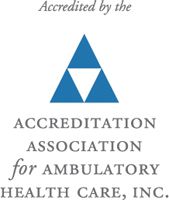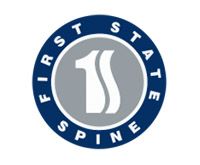Patient’s Bill of Rights
- A patient has the right to respectful care given by competent personnel.
- A patient has the right, upon request, to be given the name of his/her attending practitioner, the names of all other practitioners directly participating in his/her care, and the names and functions of other health care persons having direct contact with the patient.
- A patient has the right to consideration of privacy concerning his/her own medical program. Case discussion, consultations, examination, and treatment are considered confidential and shall be conducted discreetly.
- A patient has the right to have records pertaining to his/her medical care treated as confidential except as otherwise provided by law or third-party contractual arrangements.
- A patient has the right to know what Ambulatory Surgical Center rules and regulations apply to his/her conduct as a patient.
- A patient has the right to expect emergency procedures to be implemented without unnecessary delay.
- A patient has the right to good quality care and high professional standards that are continually maintained and reviewed.
- A patient has the right to full information, in layman’s terms, concerning diagnosis, treatment and prognosis, including information about alternative treatment and possible complications. When it is not medically advisable to give the information to the patient, the information shall be given on his/her behalf to the responsible person.
- Except for emergencies, the practitioner shall obtain the necessary informed consent prior to the start of a procedure.
- A patient has the right to refuse drugs or procedures, to the extent permitted by statute, and a practitioner shall inform the patient of the medical consequences of the patient’s refusal of drugs or procedures.
- A patient has the right to medical and nursing services without discrimination based upon age, race, color, religion, sex, national origin, handicap, disability, or source of payment.
- A patient who does not speak English shall have access to an interpreter.
- The Ambulatory Surgical Center shall provide the patient, or patient designee, upon request, access to the information contained in his/her medical records, unless access is specially restricted by the attending practitioner for medical reasons.
- A patient has the right to expect good management techniques to be implemented within the Ambulatory Surgical Center. These techniques shall make effective use of the time of the patient and avoid personal discomfort of the patient.
- When an emergency occurs and a patient is transferred to another facility, the responsible person shall be notified. The institution to which the patient is to be transferred shall be notified prior to the patient’s transfer.
- SpineCare Delaware is an outpatient ambulatory surgery center and as such, is not in a position to honor advanced directives. Any emergency occurring at SpineCare Delaware will receive an emergency response. Any patients with advance directives requiring hospitalization will have the directive forwarded to the hospital at the time of transfer. If you have an advance directive, please bring it with you to SpineCare Delaware and give to the receptionist.
- A patient has the right to examine and receive a detailed explanation of his/her bill.
- A patient has the right to expect that the Ambulatory Surgical Center will provide information for continuing health care requirements following discharge and the means for meeting them.
- A patient has the right to be informed of his/her rights at the time of admission.
- Patients have the right to change their primary or specialty physician if other qualified physicians are available.




